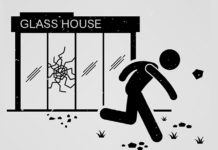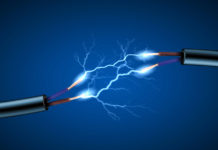FDA Approves Using Electricity All Night Long on Children’s Brains
The FDA just approved sales of an electrical device called the Monarch eTNS to be used on the brains of children diagnosed with so-called ADHD. The device “sends therapeutic signals to the parts of the brain thought to be involved in ADHD,” according to the FDA press release. “Therapeutic signals”? Really?
Are Antidepressants Enabling the Population to Tolerate the Intolerable?
Just how sad is our current state of affairs that it causes so much of the population to feel depressed and/or anxious? Just how much are these drugs changing the state of our society as a whole? Are the drugs desensitizing the population to the point that it will tolerate social conditions it would otherwise find intolerable?
My Son and the “Mental Health” System
As a father whose 27-year-old son is trapped in the mental health system, I am painfully aware that I have been unable to protect him. At age 19, my son naively told his mother and his doctor that he was hearing voices, marking the beginning of a hellish nightmare which he is still unavoidably immersed in. I would like to explain my perspective on why this is the case.
Recovery Versus Mad Pride: Exploring the Contradictions
What would mental health treatment look like if it balanced an awareness of the need for “recovery” with an awareness that people also sometimes need to go “out of their minds” to resolve problems that they haven’t been able to solve otherwise, or maybe that their entire culture has not been able to face and resolve?
Stop Shocking and Torturing Women – My Sisters
Think of all those women who have undergone or will undergo electroshock and suffer severe losses in memory, intelligence, special skills, creativity. Women too disabled by shock to pursue promising careers. Women who suddenly die after being shocked. Electroshock is torture, and informed consent in psychiatry is a myth and a lie.
Reflections on 25,000 Hours of Being With People in Extreme States
Being with someone in an extreme state or other emotional pain, it feels like we’re two young friends who have ridden our bikes to a quiet place by the river and my friend turns to tell me about awful things happening at home — and they cry or yell in anger while I sit there and wonder what to say or do, and realize that just being quiet is okay.
Thought About Killing Yourself Lately? It’s Not All In Your Head
As the world economic leader in GDP at $24 trillion per year, the United States has had steadily rising suicide rates for nearly two decades, though when compared to other economic leaders such as France, Germany, Japan, India, the UK and Italy, it remains the outlier; the rest have dropped. Why is the United States unique in its degree of misery?
On Human Nature and Its Implications for the Mind-Body Problem
Peter Hacker's magnum opus explores what it means to be human via an analysis of the language we use. Through disclosing the conceptual framework within which we think, act and come to know things, our deep and implicit understanding of ourselves and our world is revealed.
Forced Drugging with Antipsychotics is Against the Law: Decision in Norway
In all countries, we need to work for ensuring that forced medication for psychiatric patients is forbidden by law. Virtually all countries, apart from the US, have ratified the UN Convention on the Rights of Persons with Disabilities, which prohibits forced drugging, but not a single country has done anything.
A Deeper Dive into System Change in the Mental Health Paradigm
For the past several years, my blogs have centered on how policy can affect practice, especially in public mental health systems. But I haven't taken a deeper dive into strategies, especially focused for advocates who seek significant and even radical changes. I think it's now time.
Remembering Deron Drumm: The Vision and the Hope for Healing and Connection
A memorial blog for Deron S. Drumm, Executive Director of Advocacy Unlimited and founder of the Toivo wellness center, who passed away on April 4, 2019 from a sudden illness. Readers who knew Deron and would like to honor his life and work are invited to share their remembrances here.
25 Lenses Through Which to View How Life is Experienced
Each of us is a real human being dealing with real circumstances and experiencing the passage of time. Each knitted together as a multiplicity, smiling one moment and dreaming of revenge the next, oblivious to the world one moment and marching in protest the next, selfless one moment and selfish the next. Labels do not capture this reality.
On Whose Authority?
The problem with authoritarianism is that it shuts down the possibility of ordinary people (that’s all of us) creating anything new. Can therapists give up our addiction to knowing what’s “the right path,” what’s the “smart” answer, what’s the solution to the problem, in favor of supporting our clients to create new ways of building their lives?
In Defense of Anti-Psychiatry
Last year, Ronald Pies, MD and Mark Ruffalo, LCSW published an article titled "The Reality of Mental Illness." In it they claim that "most of what is asserted by antipsychiatry is easily refuted by the scientific evidence." Why then do they not refute it? The reality is that they malign us because they have no rational response to our criticisms.
Helping People to Constructively Engage with Voices
When voices are engaged with creativity and compassion, the result can be a positive change in the relationship with voices, leading to much greater peace of mind. But how can people learn how to facilitate this? A new video series by Charlie Heriot-Maitland, Rufus May and Elisabeth Svanholmer offers some practical ideas.
“Dad, You Were Right”: I Got Better When I Stopped Treatment
Through all the years that I was a mental patient, my parents were excellent advocates who constantly questioned what the docs were doing, even though my own faith in psychiatry was unwavering.... Amazingly, what cured me was not some type of “treatment,” but getting away from drugs and therapy.
Media Errors in Covering “Mental Health” – Advice to Fellow Writers and Editors
In 2015, I published a BuzzFeed feature story about Teresa Sheehan, a woman who was diagnosed with "schizoaffective disorder" and was shot by police. At the time I didn’t realize that it was my job to take the point of view of people who’ve been psychiatrically diagnosed very seriously. I was terrified of appearing to challenge the profession of psychiatry.
The Lonely Wave: On the Failure of Group Therapy
If you put mortally desperate people in a room together, what do you expect? Emotions will spill over and people will jostle for time and topic. In my groups, even the most kindhearted had attempted to either become the center of attention or slink away into silence, often leaving early with a whispered “sorry” and a quick shuffle out of the room.
The New Yorker Peers into the Psychiatric Abyss… And Loses Its Nerve
The New Yorker's story on Laura Delano and psychiatric drug withdrawal is a glass-half-full story: It addresses a problem in psychiatry and yet hides the deeper story to be told. A story of how her recovery resulted from seeing herself within a counter-narrative that tells of the harm that psychiatry can do.
Struggling Parents, Burdened Social Services: What We Can Change
Parents encounter many obstacles when trying to secure adequate educational, medical, psychological, and social supports for their children. These “dense bureaucracies” hurt not just families, but everyone.
The Science and Pseudoscience of Women’s Mental Health: Conversation with Kelly Brogan
A conversation with Dr. Kelly Brogan, a leading voice in natural approaches to women’s mental health. With degrees from MIT and Weil Cornell Medical College, triple board certification in psychiatry, psychosomatic medicine and integrative holistic medicine, Dr. Brogan is uniquely qualified to challenge the pseudoscience of the chemical imbalance theory and the drug regimens that it spawned.
ECT Explained by a CET (Certified Engineering Technologist)
A scientific understanding of electricity’s effects on the human body has only been around since the last half of the 20th century. If this understanding of electric shock and electrical injury was had in the first part of the 20th century, electroconvulsive therapy (ECT) would likely never have been accepted by modern western medicine.
Why “Middle-Grounders” May Be as Dangerous as APA Presidents
When above-the-fray/middle-roaders jump on bandwagons and criticize only those aspects of psychiatry that have become fashionable to criticize but don’t challenge the legitimacy of psychiatry as an authority, they hurt more than they help. They provide the false impression that psychiatry is self-correcting and progressing.
The Hints That Psychotherapy Clients Drop
Clients regularly hint in passing at what’s causing their distress. The hints we get from a client help us determine which of these many causes are more probable than the others or maybe even which is the cause. Nor is it hard to hear these hints, if we train ourselves to listen for them. Responding to causal hints with a spirit of inquiry and careful talking points deepens the work.
The Therapeutic Role of Blame
When fault is not placed on the right people, innocent people are left vulnerable and alone. They may also begin to question their ability to trust their own feelings and perceptions. When you refuse to blame the people who are legitimately at fault, you gaslight the people their actions are injuring, piling on additional hurt and making it much harder for the wounded to heal.

































